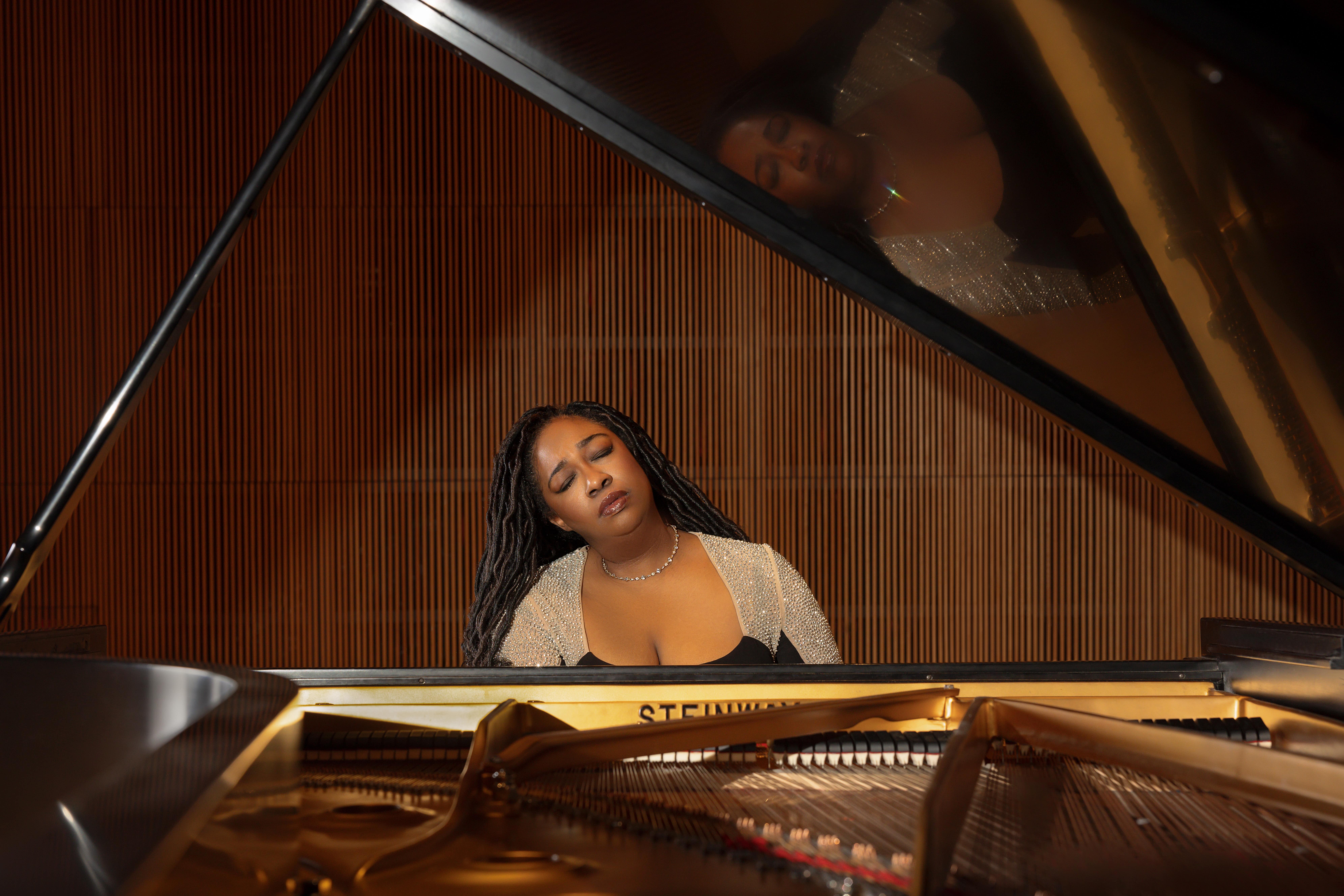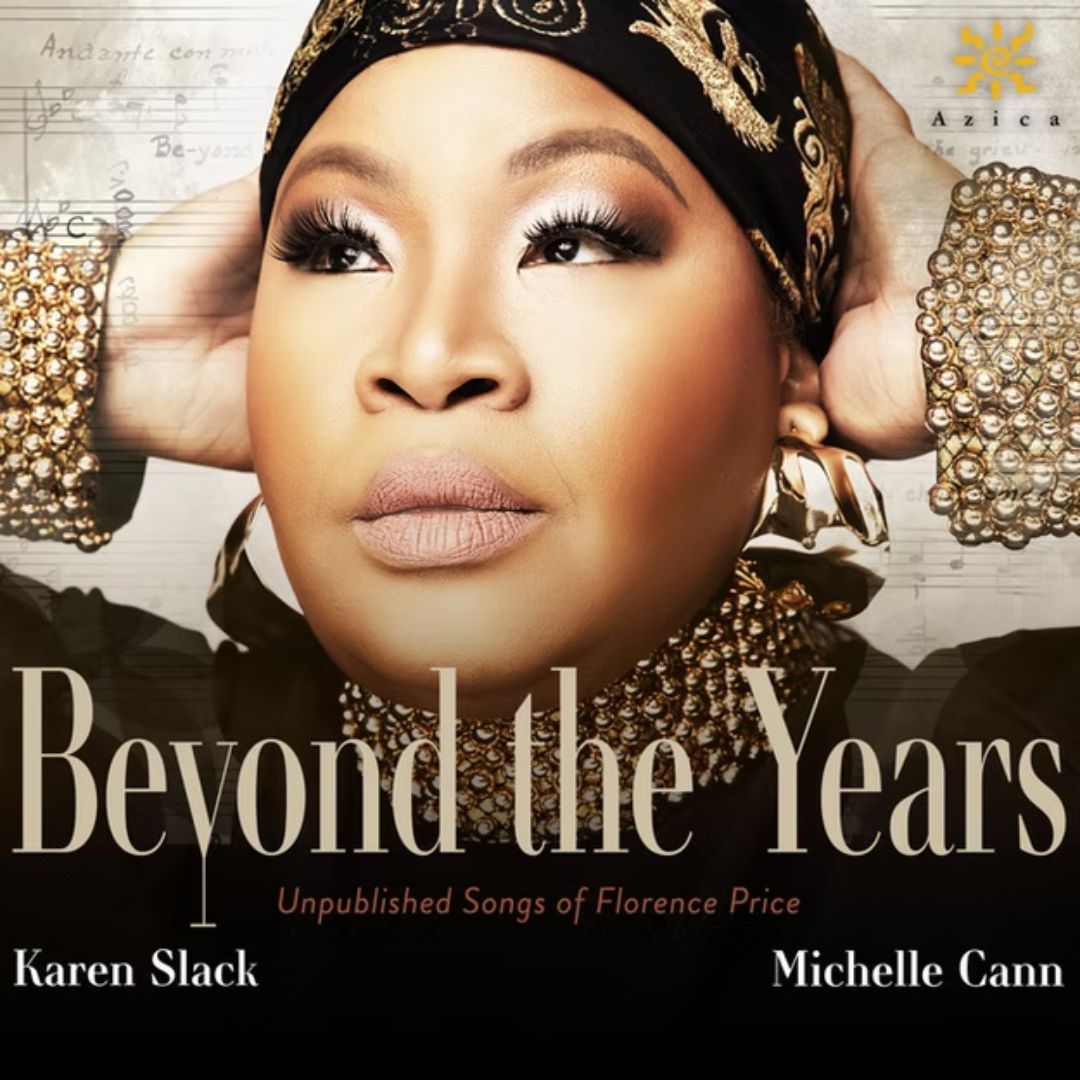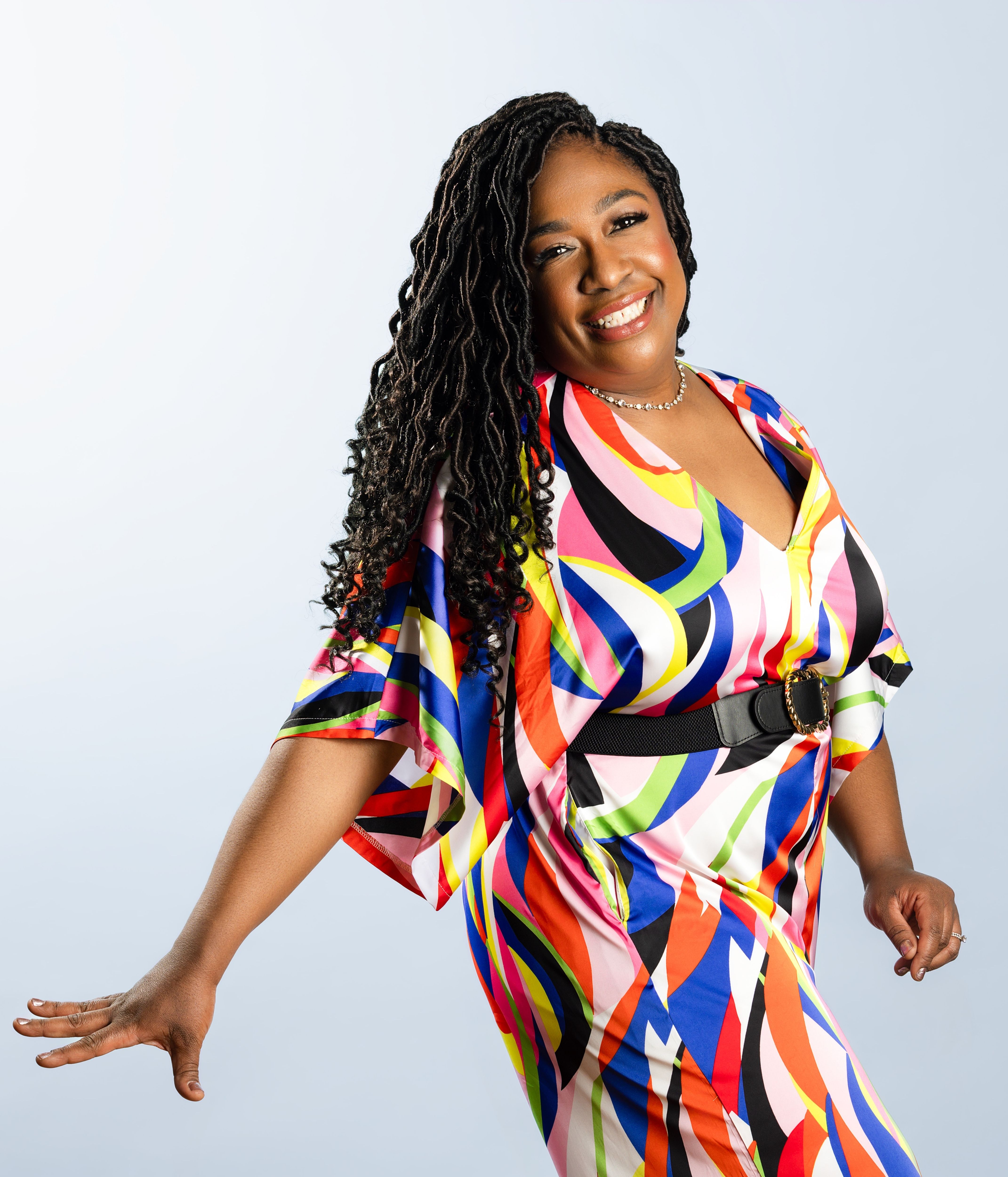By Erica Reid on behalf of the Wichita Symphony
Celebrated pianist and Florence Price interpreter Michelle Cann spoke with us in advance of her performances with the Wichita Symphony: Beethoven’s Emperor (Oct 25) and her solo recital (Oct 26).
Wichita Symphony: You always infuse a great amount of energy and emotion into your performance. What kind of emotional journey do you tend to experience as you play?
Michelle Cann: I am very much living in the moment when I perform. Obviously I am affected by the background of the piece, what the piece is about, and trying to bring that to life — those are things that I know beforehand.
But then, as I’m performing, I’m literally living in that moment. If there’s a beautiful melody or passage, as I perform, it’s almost as if it’s the first time I’m playing it, even if I’ve played the piece many times before. The hall that I’m in, the piano I’m playing on, these are variables that are always changing, and so for me, that is part of the emotional journey.
 WS: You are well known for championing the voices of female Black composers, and particularly the artists of Chicago’s Black Renaissance. How does it feel to be shining such a fantastic spotlight on these artists?
WS: You are well known for championing the voices of female Black composers, and particularly the artists of Chicago’s Black Renaissance. How does it feel to be shining such a fantastic spotlight on these artists?
MC: For me, it’s just such an honor to be telling these stories in our time. I am playing this music and telling their great history, and I just wish they could be here to tell their own stories and share their music — and have gotten the same platforms and opportunities that I am getting now, to showcase their music. It just wasn’t the same world for them.
We always have to thank those who came before us, that paved the way for us. The work that they did has made a more equitable time for me to go and tour and do these things. I wouldn’t have had these kinds of opportunities had they not done this work — the work of putting themselves out there, writing this music, and pushing to be heard. Women everywhere have fought for women of all races now to have equal career opportunities. I feel very humbled.
What is always positive for me is to hear audience members say they’ve never heard of some of these names and now they want to go find the music, especially if they are musicians or pianists themselves, or they want to teach it to their students. That, for me, is the best I can do. Not just to have moved you in the moment, but also to encourage you and inspire you to bring that to your own community or your own students. For me, that is huge — that is how their legacies will live on.
 WS: Congratulations on your 2025 GRAMMY Award for Beyond the Years: Unpublished Songs of Florence Price! Can you share a memory about creating that album?
WS: Congratulations on your 2025 GRAMMY Award for Beyond the Years: Unpublished Songs of Florence Price! Can you share a memory about creating that album?
MC: Thank you! I was so excited to be a part of this. It wasn’t my idea, initially — an organization called One Composer, which does a lot of advocacy work and research to help promote composers, especially ones who haven’t had a voice, had done the initial leg work to bring the songs of Florence Price to life. They had boxes of Florence Price’s songs that had been in attics for decades and decades. They found these boxes of music in 2009, and since then there has been a lot of work to bring them to the forefront. One of those pieces was her piano concerto, which I have championed for quite a while now.
When I was asked to be a part of this project with [soprano] Karen Slack to read through these songs, we both said we had not heard certain sides of [Price’s] personality before. It just showed you the range that she had as a composer. A lot of people like to identify her as really being connected to spirituals and Black musical idioms, which of course was a strong point for her, but some of these songs were pulling away from that connection to spirituals — they were art songs, from the classical music canon. They could fit right next to Schubert or such. We were very excited to be the first to bring these songs to life.
WS: Audiences may have heard of Florence Price, but may not be as familiar with composers such as Nora Holt and Irene Britton Smith. Can you tell us what drew you to the works of one of the other too-often overlooked composers on your repertoire list?
MC: What drew me to these other composers came out of my excitement about Florence Price. I was so moved by Price’s story, and I had not realized the breadth of her life and accomplishments. I knew she was out of Chicago and that a lot of musicians migrated to Chicago and thrived there because that was a big scene for Black musicians, so I just became curious. I was reading a lot about her life, and saw that she had come across and inspired many musicians of her time, including Margaret Bonds — she taught her.
So then, in my readings, I came across these names. Nora Holt. Irene Britton Smith. Betty Jackson King. All these names popped up and I got really excited. I dove in. “Is there music for piano that I can learn?” And that’s how it started: from reading, and from feeling very strongly that there were other lost voices that needed to be found.
WS: Is there one composer whose work you’ve never had a chance to perform, that you’d like to?
MC: There are so many! One I’m curious about is Julia Perry. She was a Black composer and conductor. There’s a piano concerto that she wrote that has piqued my interest, and I hope to play that some day.
WS: You often perform both with a full orchestra (as on Oct 25) and in solo piano recitals (as on Oct 26). Do you prefer one style of performance over the other?
MC: Honestly, they are so different, recitals and orchestral performances — I love them both for different reasons. I am a chamber musician by heart — I actually grew up playing violin, trombone, singing in the choir, so first of all, I was used to being in ensembles, along with soloing on the pianos. And so I live for playing with orchestras, because it’s like chamber music at the grandest level, so it’s very exciting for me.
The recital is so different for me because of the intimacy and the control I have. I can curate the program. I usually talk to the audience in between pieces. I can really make it my own. And obviously I can explore so much within the solo piano repertoire that’s out there. So, it’s all me. Everything about the interpretation is coming from me. There’s something so personal and great about that.
 WS: How does the piano help you find joy in a world full of conflict?
WS: How does the piano help you find joy in a world full of conflict?
MC: It just does, because music does that for me! Piano is just the tool. It is the instrument that I can most effectively — and in the way that I want to — bring music to life.
Music… we don’t own it. We don’t own the beauty and the power of musical notes coming together to create harmonies and melodies and so on. That is out of us. That is beyond us! But we are lucky to be able to tap into it and experience it. Being able to do that through the tool of the piano is really an honor and a joy for me, because music is a joy for me. Music uplifts me, soothes my soul, and brings meaning to life. It’s everything.
Michelle Cann is represented by Curtis Artist Management at Curtis Institute of Music. Michelle Cann photos credit: Titilayo Ayandage
For tickets and details about upcoming WSO Connect events, visit: https://wichitasymphony.org/events/wso-connect
|
Please upgrade

Internet Explorer
|
or try one of these other browsers.
Browsers are free and easy to install.
|
||||
| Upgrade Internet Explorer | What's a browser? Opt out |